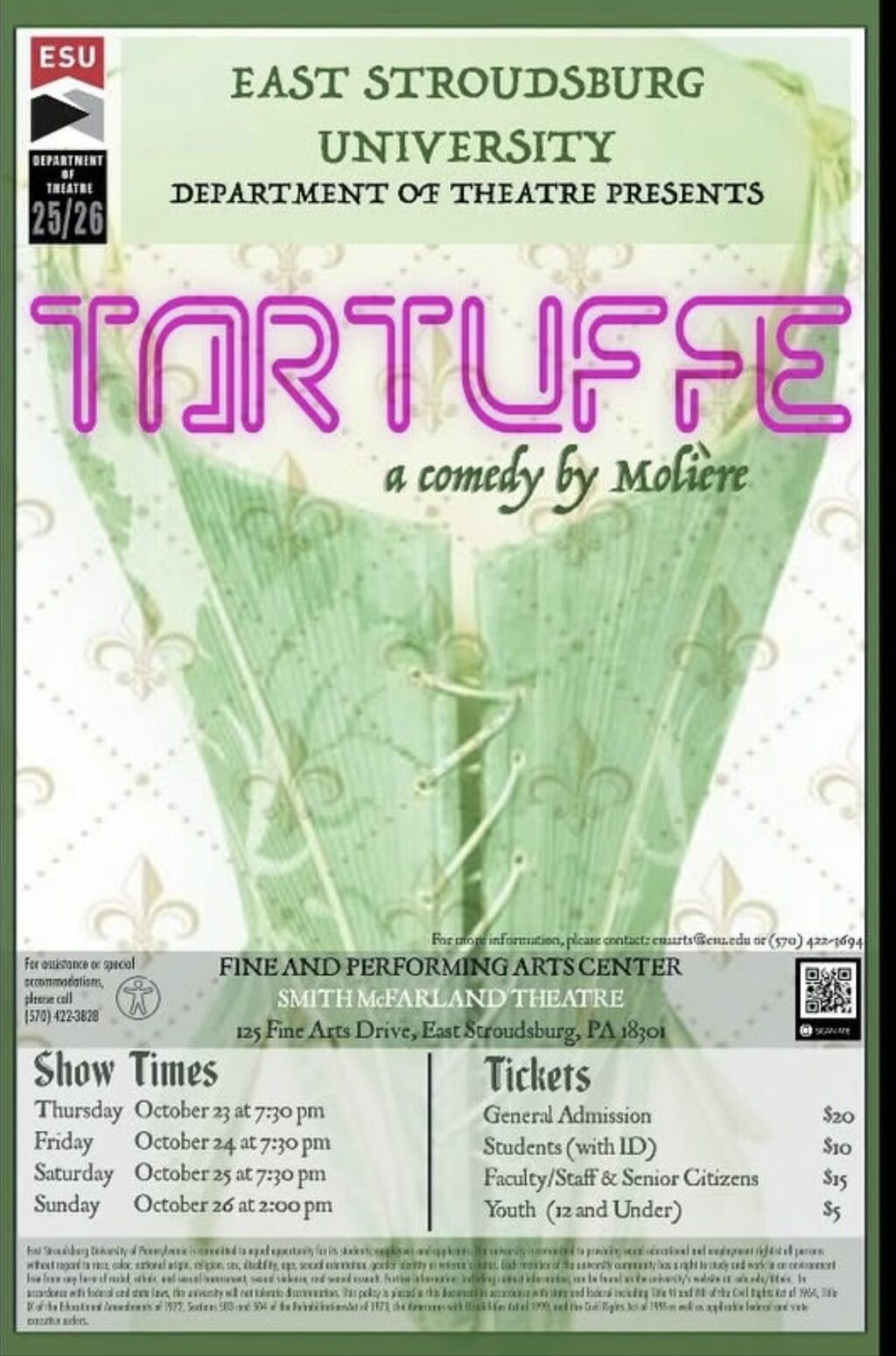Annabel Pyne
Student Life Editor
Tartuffe, a satirical comedy set in the 1600s, was performed by the East Stroudsburg University Theater Department last weekend, October 23-26. This version of the play put a modern twist on the classic by Molière meant to reflect some of the frustrations that people are feeling in modern society.
Tartuffe tells the story of a hypocrite who has been invited into a rich family’s home. He poses as a religious figure and cons the father, Orgon, into believing his lies. Orgon, foolishly gives all his property to Tartuffe, and he reveals his true nature. Tartuffe attempts to take the property, but is thwarted by the king who sees through his plot.
“The show is really funny, and I’m really excited to hopefully hear the laughs from the crowd,” said Alli Wright, an actress who played Flipote.
Unlike most classic theater, this play was performed in the round. The production crew put seats on the stage so there was an audience on all sides of the actors, whose performance was confined to a small room. The comedy invited many laughs as its slapstick nature made it easy to understand even when some of the language was dense.
Not only was the content modern, but the set and costumes represented some of the modern flair intended by the production team. Many of the younger characters wore modern sneakers, a maid has a similar style to Ariana Grande’s high ponytail, and an apron that had “tax the rich” sewed into it. When Tartuffe takes over the house he brings in this lifesize cutout of himself that nearly falls over every time the door is shut too fast.
There was also a classical version of the YMCA that Tartuffe and his servant, Laurent, dance to in victory after he is handed the deed to the house. The production crew did not shy away from modernizing something for a laugh.

The content was modified by one of the directors, Jason Narvy, who added some new material to emphasize some of the points from the original show or make a moment feel “particularly sing-songy,” according to the play’s program. That is not including the small improvisational moments that the actors are adding throughout the story.
Molière’s Tartuffe was written in a time when certain small groups were starting to guide what the church was doing. These church authorities were getting rich and were starting to get power as they cozied up to those higher authorities in the church and the government. Molière noticed these patterns and wrote Tartuffe as a criticism, but these authorities were able to block this play for 5 years before it was finally allowed.
“I think it’s something people are feeling right now. There are smaller groups that are pushing us all in certain directions. The hypocrisy that people are calling out right now, is literally unprecedented … that’s why I think it’s so modern” said Narvy.
Tartuffe was a satirical comedy that invited audiences to enjoy the lunacy of Orgon’s family. Though there may have been some reflections on society, it still served to distract with the over-the-top comedy and had the audiences laughing consistently throughout the production.

